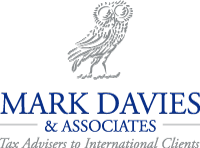Business Investment Relief (“BIR”) is a tax break available to foreign domiciliaries or non-doms who claim the remittance basis. It is a very valuable relief as it allows a non-dom to remit foreign income or gains to the UK and invest in a qualifying business without the remittance becoming taxable in the UK. Sadly, it is utilised by very few as the relief is not well publicised and there are strict rules that need to be met. However, for those considering investing in UK businesses it is worth seeking our specialist advice in order to access the relief safely and save clean capital for other purposes. It is easy to fall foul of the BIR disqualification rules. For example, if you, or any of your extended family, receive goods or services from the business in which you invest it won’t qualify for BIR. This means that careful planning and record keeping are crucial.
How do I make a Clearance Request for BIR?
Firstly, it is possible to check eligibility for BIR prior to making an investment. Mark Davies & Associates can submit your case in the form of a “Clearance Request” to HMRC’s BIR team. There is a broad spectrum of investment opportunities which can qualify as a qualifying trade but there are some restrictions. For example, investment cannot be made in a quoted company or a partnership. However, investing in AIM listed UK stocks may be possible, as is investing in companies which are eligible for the Seed Enterprise Investment Scheme and the Enterprise Investment Scheme.
When and how do I bring funds to the UK, with which to invest, in order to maximise the relief?
Secondly, it is important to seek advice on bringing funds to the UK within the time limit and making a BIR claim on your self-assessment tax return.
It is also possible for foreign domiciled individuals to make an investment by way of loan by lending foreign income or gains from abroad to the qualifying business. The loan can be repaid from the business’ profits in due course without losing the relief.
When the investment is sold the gain on the investment becomes liable to UK Capital Gains tax. However, if the share of the gain relating to the original remittance of foreign income or gains is reinvested in another qualifying business or is taken abroad there is no tax charge on the original remittance. Again, however, the timing of these taxable events and claims for relief are crucial and it is important to seek advice on the best way to organise a sale to stay within legal requirements.
Contact us here to arrange a meeting to discuss your requirements.
Click here for a case study of using BIR as a means to diversify investment.

